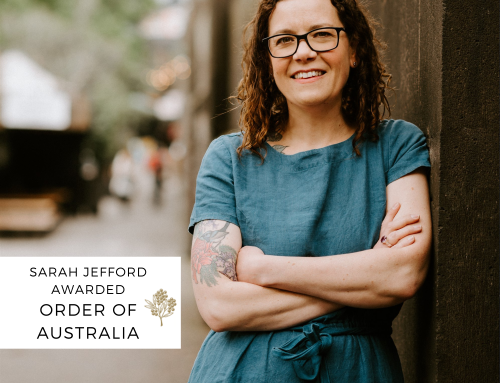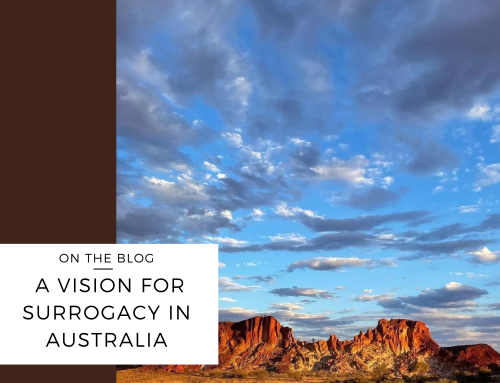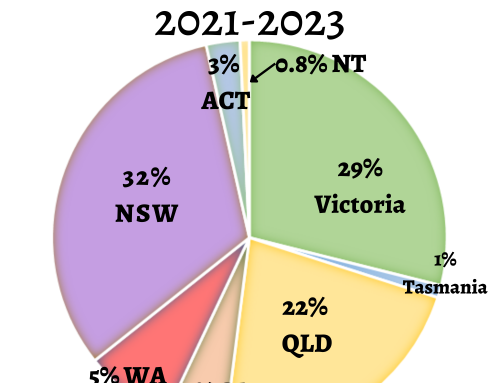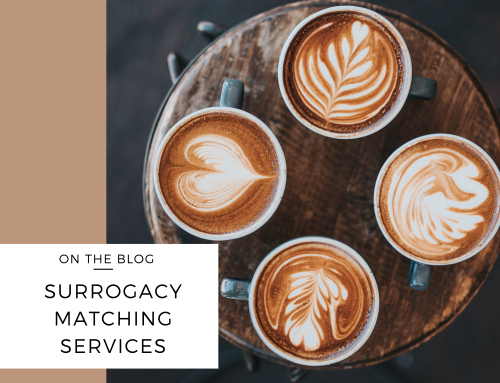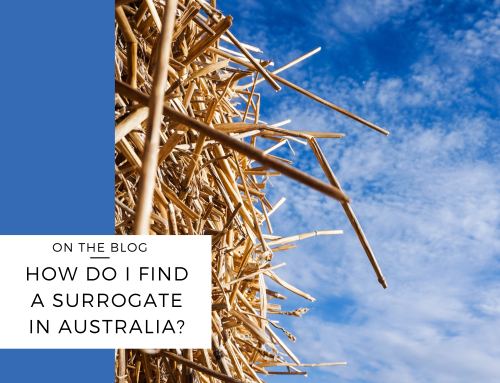Kids and surrogacy – complex problem or privileged experience?
If you are new to surrogacy as an intended parent, you might like to start with this post. If you are a potential future surrogate, this post provides some information.
I’ve written a book, More Than Just a Baby: A Guide to Surrogacy for Intended Parents and Surrogates, the only guide to surrogacy in Australia.
I’m often asked about my children’s responses to me being a surrogate, and for advice about preparing children for surrogacy. My kids were taught fairly early that sperm+egg+uterus=baby. They’re still learning about heterosexual sex being one way to make a baby, but in the beginning we simply explained it in terms that they could grasp. The first book we read on the topic was ‘What Makes a Baby.’ We also explained that our first son Archie was conceived through IVF, because Mummy and Daddy needed help to make a baby and Dr Fox gave us that help. Archie likes that story; I think it makes him feel special that we went to so much effort to create him.
We started talking about me being a surrogate when Archie, who was 6 at the time, asked about his friend who had two mums – why didn’t he have a dad? We talked about some kids having a mum and a dad, or two mums, or two dads. He knew that I’d been an egg donor, that some of his friends were conceived with the help of a donor, and that at the time, our friend was pregnant with a child conceived with one of my eggs. He was surprised that two men could have a baby – he laughed and said “But how? They don’t have a uterus!” I explained that sometimes a woman like me would carry the baby in my uterus, and that the baby would have two dads. Archie was satisfied with this explanation – perhaps because donor conception was already familiar to him.
As the time drew closer for me to start trying to conceive a child for our intended parents, we talked in more specific terms about our friends wanting a baby, and that Mummy would carry the baby for them. We talked about the baby growing in my belly, but that the baby would go home with our friends, and not home with us. Both my children – by this time aged about 7 and 4 – wanted to know if we would see the baby, and could they cuddle the baby? Of course! We could visit and the baby would visit us.
Remember, that we only know what we know, and my kids didn’t know any different than what we told them. They knew that the baby was not coming home with us – there was no grief about this, it was just matter-of-fact. We talked about the pregnancy and what was happening to my body, and why Mummy couldn’t bend down to pick up their toys. Some of the biggest discussions in our household were about the birth plans and arrangements for someone to care for our kids whilst I was at the hospital. We made sure the kids understood what to expect if they woke up to find a babysitter in the house, and that they would be able to visit me and the baby in hospital when the time was right.
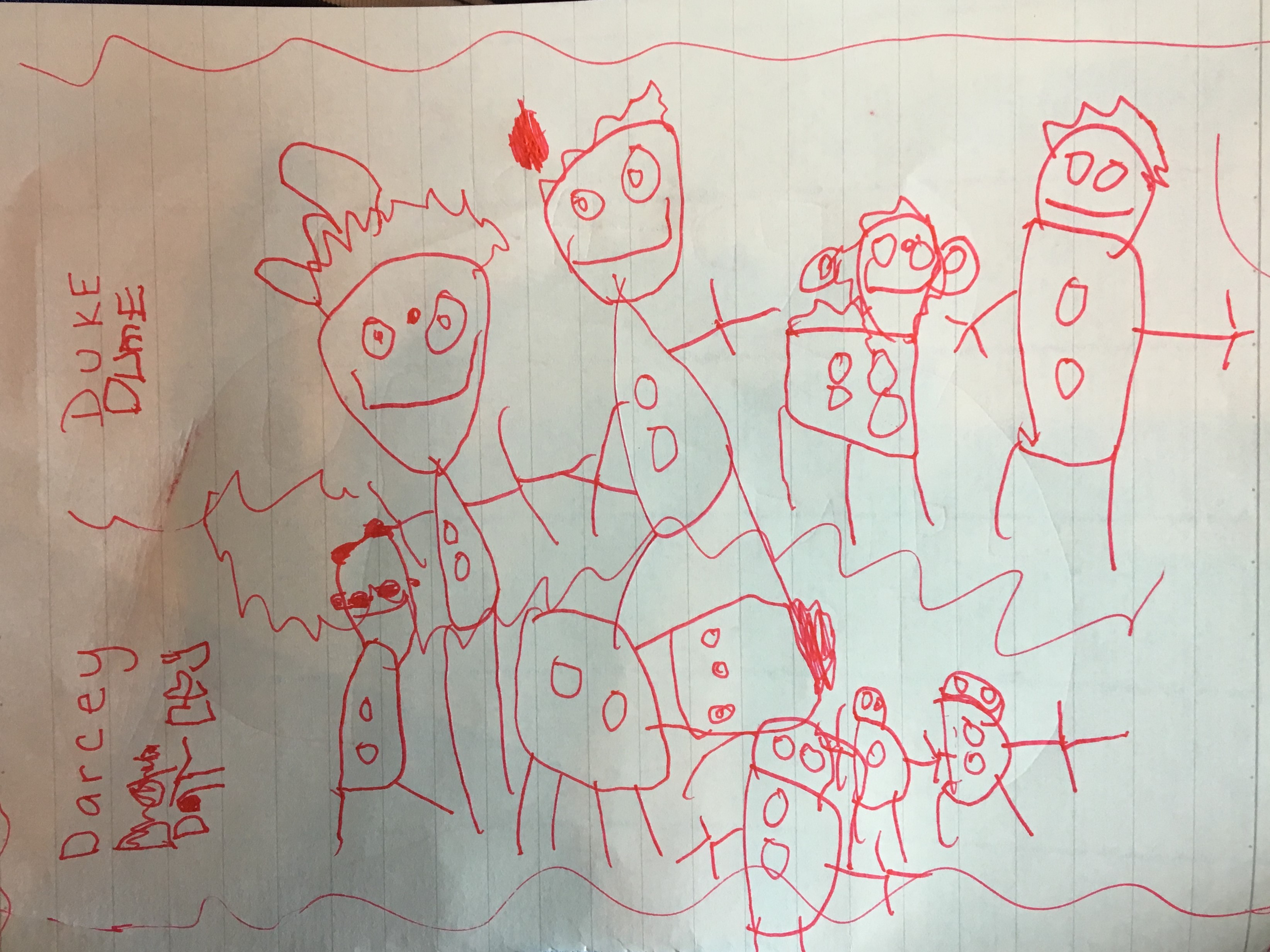
“This is Mike and Nate and Duke (dog) and Daddy and Mummy and Scarlet (cat) and Archie and Darcey and me.” – Raf, 4yo.
When I gave birth and was away in hospital for a few days, our kids were excited for news updates and to be able to come and visit us in the hospital. Shortly after we left the hospital, we visited our intended parents and the baby in their home. We explained that I might be a bit sore and maybe even a bit teary in the first few weeks, and that they could ask questions but there was nothing to worry about – Mummy was happy that the baby was here and with her dads, but giving birth was tiring and I needed lots of rest and hugs. Our son Raf, who was almost 5, drew a picture of all of us, and it was lovely to see him excited about our new family. Both kids took photographs of themselves with the baby to show their friends at school.
Since then, the kids have an understanding that there are some women who are surrogates like Mummy, but our surrogacy journey doesn’t really rate a mention. They look forward to spending time with our intended parents and the baby, and dote on her the way they dote on their baby cousin. Sometimes babies are fun, but sometimes Lego is more interesting.
My advice for anyone needing to explain surrogacy to children, is to be honest and keep it simple. There are plenty of books available that can help tell the story of donor conception and surrogacy, a few which I’ve listed below. Remember, kids don’t need complex, scientific explanations for something that is, ultimately, a story of love – that the intended parents would like a baby, and the surrogate is going to help them have one. Involve them in the story and answer their questions honestly, and give them the language to understand and be able to explain it to other people. It’s not that complicated.
If you are looking for books and resources, try:
This list of resources and books about surrogacy and donor conception.
The Donor Conception Network is a UK-based organisation started by the parents of donor-conceived people, and which provides support and resources and books about all forms of conception and family-creation. Their books can also be found at VARTA in Victoria.
VARTA’s Time to Tell seminars provide resources for telling children their donor and surrogacy story.
Milo’s Adventures: A Story About Love by Frankie Nelson, BJ Barone, and Debbie Donsky is Milo’s Adventures is a story of surrogacy, love and becoming a family.
The Kangaroo Pouch by Sarah Phillips Pellet introduces young children to the concept of surrogacy.
For explaining conception (sperm+egg+uterus), What Makes a Baby is a picture book by Cory Silverberg, for every kind of family and every kind of kid.
Another book about all the forms of family-creation and conception is The Amazing True Story of How Babies are Made by Fiona Katauskas, an Australian author.




